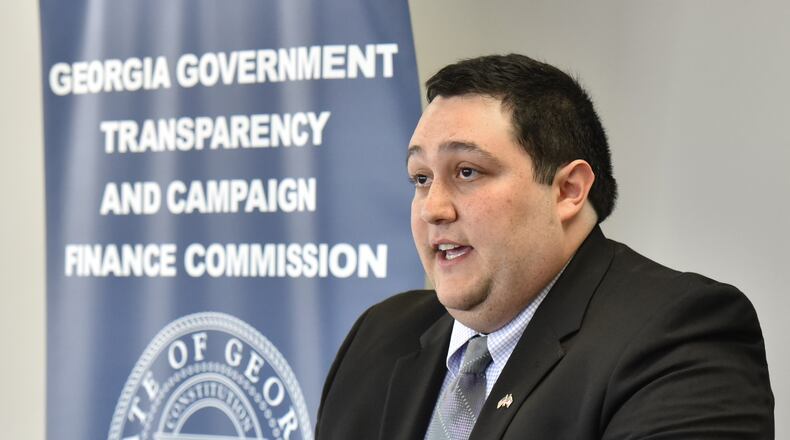For big-money donors in Georgia, political campaigns will get a little more expensive next year.
The state ethics commission — formally known as the Government Transparency and Campaign Finance Commission — raised the maximum campaign contribution limits by up to $1,000 for donors to most statewide candidates who make it to the general election, and up to an extra $500 in legislative contests.
That won’t affect the average political donor. But thousands of lobbyists, industry associations, businesses, individuals and political action committees donate as much money as they can each election cycle to leading candidates.
The Atlanta Journal-Constitution reported earlier this year that state leaders, lawmakers, their caucus political action committees and parties raised about $1.5 million in the days leading up to the 2019 legislative session, and many of the donations were maximum contributions. Last year's governor's race cost in the range of $100 million.
Some members of the commission expressed a desire to reduce the amount of money in politics.
But state law — passed by the General Assembly years ago — prevents them from doing anything about it.
The commission voted last week to raise the limit on donations in statewide races — for governor, lieutenant governor, attorney general, etc. — from $6,600 for a primary, $3,900 for a primary runoff and $6,600 for a general election, to $7,000 for both primary and general elections, and $4,100 for a primary runoff.
Since primary runoffs are fairly common, someone planning to run for governor would be able to raise $18,100, rather than $17,100, from a single donor.
Candidates who wind up in one of the fairly rare general election runoffs could take in an additional $4,100 per donor.
While there won’t be another governor’s race until 2022, state lawmakers will be on the ballot next year.
For their races, the change would allow lawmakers to raise $2,800 each for primary and general elections from a single donor, and $1,500 for a runoff. That would increase the total for a General Assembly candidate who has a runoff from the current $6,600 to $7,100 from a single donor.
Allen Yee, a member of the commission, noted that the maximum donation allowed for statewide candidates is far higher than it is for Georgians running for Congress. Someone can give a congressional candidate up to $2,700 per election — primary, runoff or general.
“I am struggling with why the number is so large compared to the federal number,” Yee said.
Eric Barnum, another commission member, raised the idea of the commission taking a stand for lowering the contribution limits to reduce money in politics.
“My guess is they (politicians) would all love us to raise the limits,” Barnum said. “It makes fundraising easier.”
But commission staffers pointed out that they didn’t really have that option.
Under state law, the commission can only lower or raise rates based on inflation. If there is little or no inflation, they can leave the limits as they are.
David Emadi, the executive secretary of the commission, said the limits the panel changed had been in place since 2016. He added that California, Ohio and Wisconsin were among the states that allowed donors to give local candidates more than in Georgia.
“Ours is much lower than a number of states,” he said.
Stay on top of what’s happening in Georgia government and politics at www.ajc.com/politics.
About the Author
Keep Reading
The Latest
Featured




